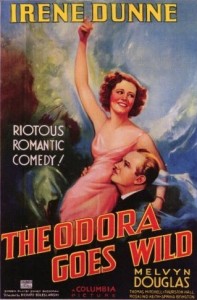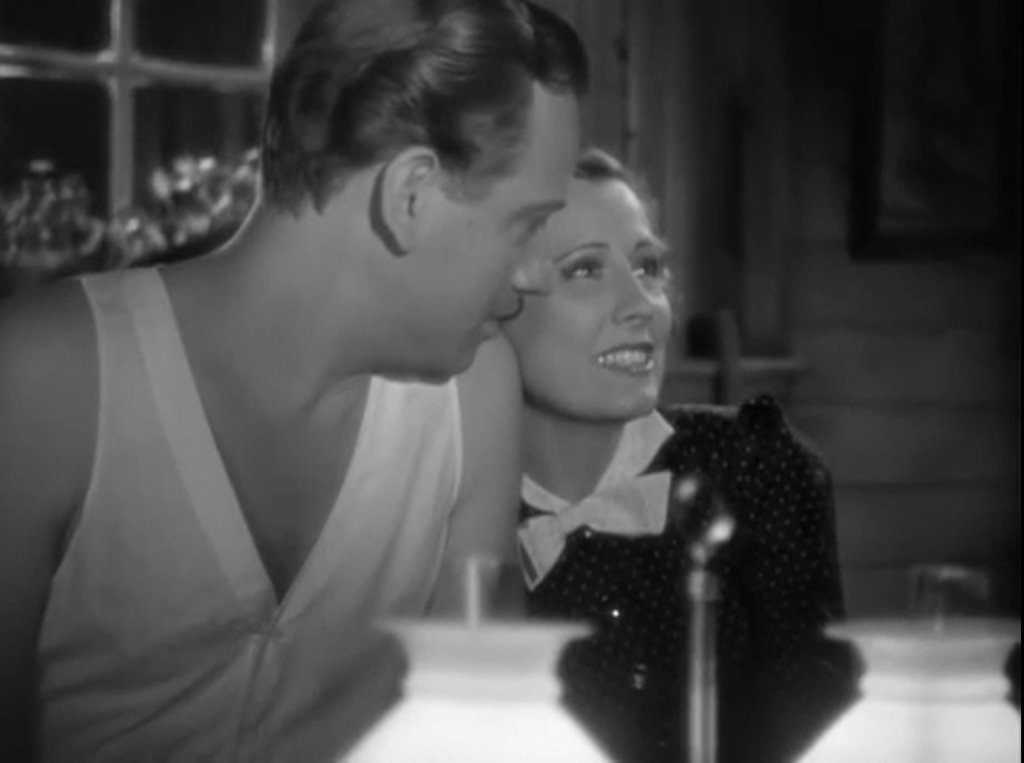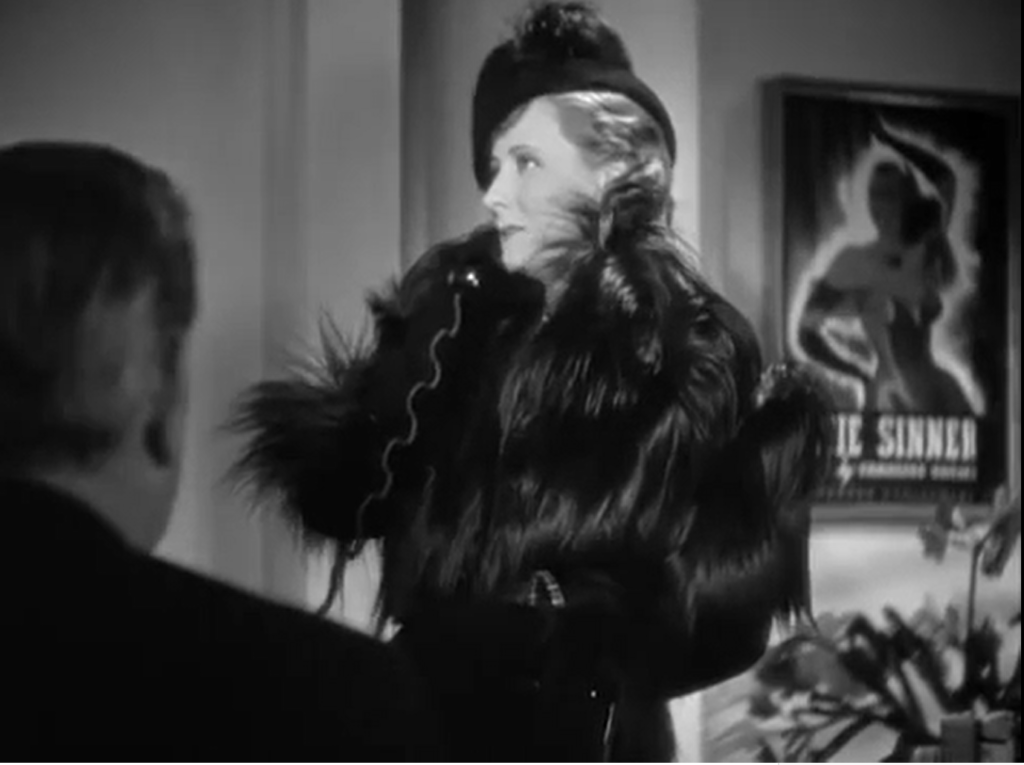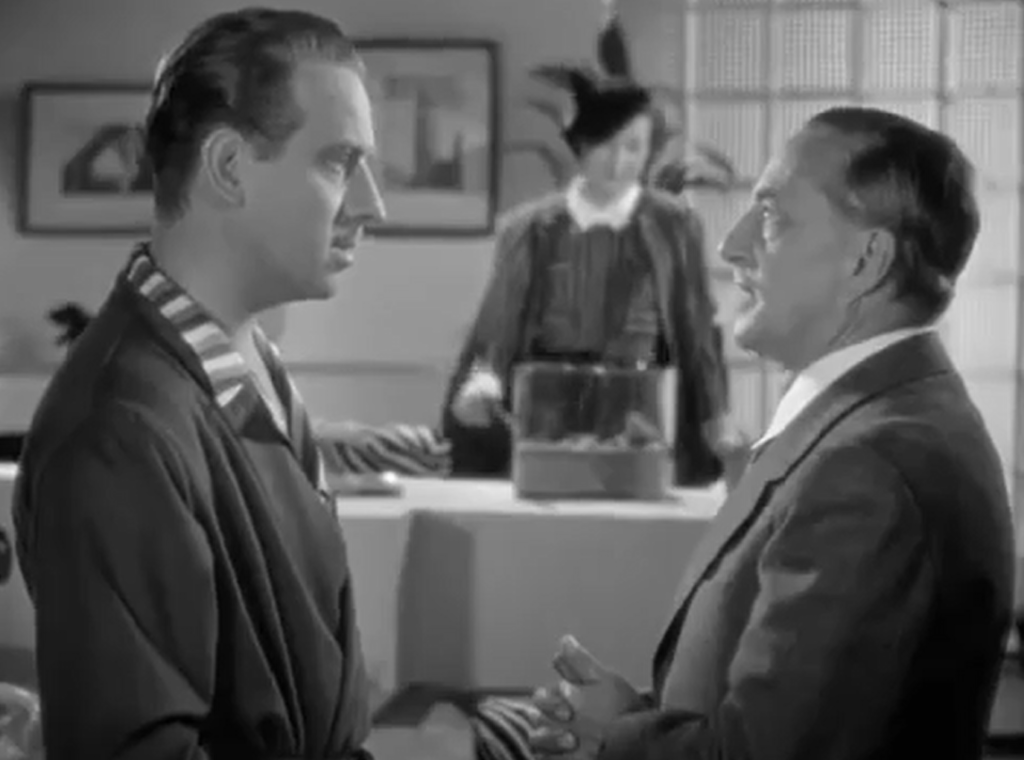Theodora Goes Wild (1936)
“Everything Lynnfield doesn’t want you to feel, you write about — love, laughter; all the things you want to experience but can’t.”
|
Synopsis: |
|
Genres, Themes, Actors, and Directors:
Response to Peary’s Review: — and he accurately notes that “when Douglas flees to New York, Dunne should let him go… rather than becoming an unbearable character herself.” Plus, I don’t buy Douglas’s motivation for following Theodora (Dunne) out to the small town of Lynnfield, given that he’s already married and has no interest in pursuing a lasting relationship with her. (His character would have made a lot more sense to me if he was a reporter trying to pen a scoop story.) Other minor quibbles with the movie include the fact that it’s difficult to take Theodora seriously as a writer, given that we never see her writing (what goes on in her head during the process?). Plus, two pets (a cat and a dog) are hurt in the story — presumably for laughs, but neither scene is really all that funny. Despite its flaws, however, the film has several redeeming qualities. It makes the point that small-mindedness isn’t exclusively a small-town trait (indeed, Douglas’s wealthy New York family is just as stuffy as Lynnfield’s puritanical “bluenoses”). It also provides an interesting twist on the theme of revenge, given that Theodora isn’t simply trying to “get back” at Douglas; she genuinely wants to help him break free, just like he “helped” her. Finally (and most importantly), Irene Dunne sparkles in the lead role — it’s a joy to watch Theodora emerging from her shell, and easy to see why Dunne quickly landed additional roles in romantic comedies. Redeeming Qualities and Moments: Must See? Links: |




One thought on “Theodora Goes Wild (1936)”
First viewing. Definitely not a must – one tiresome, tiresome picture, which really shouldn’t be considered screwball comedy. Unlike the best of such ’30s films (i.e., ‘Twentieth Century’, ‘My Man Godfrey’, ‘Bringing Up Baby’ – all which hold up very well even today), there is a total lack of wit and no requisite house-of-cards build to a tumble.
It does start out with promise and, in a small role as a newspaper publisher, Thomas Mitchell has one of the best lines when on the phone with a complaining customer: “I apologize for waking the town of Lynnfield out of a 20-year sleep to show it how people live and learn and love in the wide-awake world!” There is also a welcome, plot-based visual joke near the end.
However, as stated, Douglas’ character is rather insufferable. All that whistling! And one wonders how he holds down a job. Dunne is obviously trying her best but once her character ‘goes wild’ and abruptly transforms, she’s left with little but an endless parade of designer gowns.